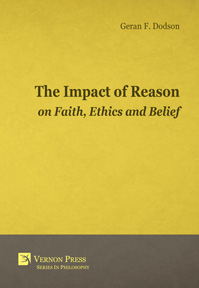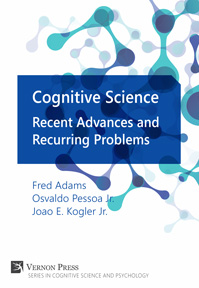Free Will, Neuroethics, Psychology and Theology
by Geran F. Dodson (University of North Georgia)
Purchase this book
(click here to change currency)
The topic of human free will has received more attention in the past several years due to the important discoveries of neuroscience but no consensus of opinion is evident in related disciplines. The traditional approach to understanding free will in philosophy employs conceptual analysis to determine whether humans have freedom of choice. Theology affirms that every person has free choice although God is somehow behind all human decisions. Evolutionary psychology points to human behavior as the product of biological processes and antecedent events. And neuroethics attempts to define what it means to be a thinking moral agent by investigating how neurons in the brain and chemical interactions combine to produce conscious actions. An assessment and evaluation of these various positions is given in light of the evidence. The issue of whether a person can be held morally responsible for their actions hinges on whether those actions originate from free will or are the result of determinism. Theology makes assumptions of the existence of an absolute deity that has a hand in human decision making, but there is no agreement regarding the nature of that intervention. Recent scientific discoveries confront traditionally held religious beliefs and necessitate the creation of a new theology and articles of faith.
Introduction
I. Philosophy and Free Will
A. Determinism
B. Compatibilism, Incompatibilism, and Libertarianism
C. Indeterminism
D. The Philosophy of Science
E. The Illusion of Free Will
F. Implications
II. Theology and Free Will
A. The Message of the Old Testament
B. A History of Sin
C. Jesus and Free Will
D. Paul the Apostle
E. Roman Catholics and Protestants
F. An Evaluation
III. Science and Free Will
A. The Dawn of Neuroscience
B. Genetics and Free Will
C. Opposition to Scientific Claims
D. The Challenge
IV. Psychology and Free Will
A. Free Will and Folklore
B. Evolutionary Psychology
C. Social Psychology
D. Final Thoughts
V. Ethics and Neuroscience
A. Teleology (Consequentialism)
B. Deontology (Non-consequentialism)
C. Virtue Ethics
D. Neuroethics
E. Ethics and Moral Responsibility
F. A Reflection
VI. Toward A New Theology
A. Ethics and Theology
B. Original Sin
C. Arguments for the Existence of God
D. Perception and Belief
VII. A New Theology
VIII. The Future of Free Will
A. Philosophy
B. Evolutionary Psychology
C. Theology
D. Evolutionary Psychology of Religion
E. Science
Conclusion
Bibliography
Index
Geran F. Dodson is an adjunct professor at the University of North Georgia, Gainesville, GA, and Strayer University, Atlanta, GA. An instructor in the College of Arts and Letters and the College of Business at both universities, he teaches Philosophy, Religion, Humanities, Economics, and Business. His degrees include the Bachelor of Arts from Millsaps College, Jackson, MS; Master of Divinity, Lexington Theological Seminary, Lexington, KY; Master of Business Administration, Emory University, Atlanta, GA; and Post-graduate studies in New Testament, Emory University, Atlanta, GA.
Free will, ethics, neuroethics, neuroscience, moral responsibility, philosophy, evolutionary psychology, evolutionary psychology of religion, social psychology, theology
See also
Bibliographic Information
Book Title
Free Will, Neuroethics, Psychology and Theology
ISBN
978-1-62273-153-4
Edition
1st
Number of pages
170
Physical size
236mm x 160mm

![Free Will, Neuroethics, Psychology and Theology [Hardback]](/file/3005/e35425b182d6a2176759d7eef64a3d17/1483177347.jpg)




